
The 2012 Hong Kong Legislative Council election was held on 9 September 2012 for the 5th Legislative Council (LegCo) since the establishment of the Hong Kong Special Administrative Region.

The administration of Leung Chun-ying as Chief Executive of Hong Kong, officially referred to as "The 4th term Chief Executive of Hong Kong" relates to the period of governance of Hong Kong since the transfer of sovereignty over Hong Kong, between 1 July 2012 and 30 June 2017.

Moral and national education (MNE), initially known as Moral and civic education (MCE), was a school curriculum proposed by the Education Bureau of Hong Kong in 2012.
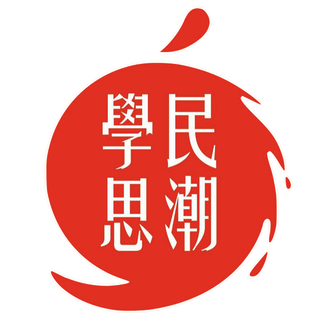
Scholarism was a Hong Kong pro-democracy student activist group active in the fields of Hong Kong's education policy, political reform and youth policy. It was reported to have 200 members in May 2015.

Occupy Central with Love and Peace (OCLP) was a single-purpose Hong Kong civil disobedience campaign initiated by Reverend Chu Yiu-ming, Benny Tai and Chan Kin-man on 27 March 2013. The campaign was launched on 24 September 2014, partially leading to the 2014 Hong Kong protests. According to its manifesto, the campaign advocates for an electoral system in Hong Kong that is decided through a democratic process and satisfies international standards of universal and equal suffrage. With the first three stages of the movement – dialogue, deliberation and citizens' authorization – the civil disobedience that follows must be non-violent.
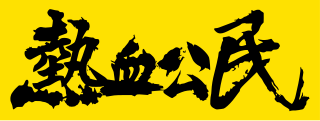
Civic Passion was a radical, populist, localist, and nativist political party in Hong Kong. Founded by Wong Yeung-tat as an activist group in 2012, it held strong localist views and opposed the involvement of the Chinese government in the governance of Hong Kong. In the 2016 Legislative Council election, the Civic Passion formed an electoral alliance with Wong Yuk-man's Proletariat Political Institute and Chin Wan's Hong Kong Resurgence Order. Cheng Chung-tai became the only candidate of the alliance elected to the legislature and subsequently took over as the leader of the Civic Passion. After the election, Cheng reorganised the group into a political party and pulled out from the social activism. From December 2020 to August 2021, it was the only opposition party in the Legislative Council of Hong Kong.

The Alliance for Peace and Democracy is a pro-Beijing political group based in Hong Kong. It was founded on 3 July 2014 by members of the pro-Beijing alliance including 40 pro-Beijing groups and scholars, many of whom are also members of the pro-Beijing group Silent Majority for Hong Kong, and was backed by the pro-Beijing Parties Democratic Alliance for the Betterment and Progress of Hong Kong, The Hong Kong Federation of Trade Unions and The New People's Party.

Joshua Wong Chi-fung is a Hong Kong pro-democracy activist and politician. He served as secretary-general of the pro-democracy party Demosistō until it disbanded following implementation of the Hong Kong national security law on 30 June 2020. Wong was previously convenor and founder of the Hong Kong student activist group Scholarism. Wong first rose to international prominence during the 2014 Hong Kong protests, and his pivotal role in the Umbrella Movement resulted in his inclusion in Time magazine's Most Influential Teens of 2014 and nomination for its 2014 Person of the Year; he was named one of the "world's greatest leaders" by Fortune magazine in 2015, and nominated for the Nobel Peace Prize in 2017.

Benny Tai Yiu-ting is a Hong Kong legal scholar, political figure, and democracy activist. He was an associate professor of law at the University of Hong Kong.
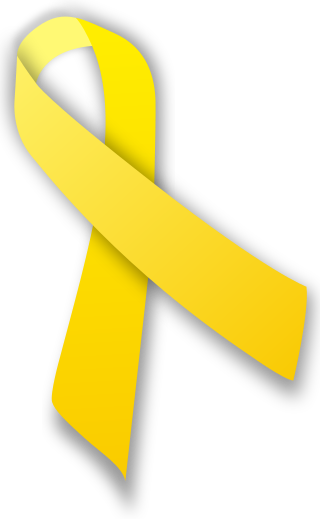
The 2014 Hong Kong class boycott campaign, also known as 922 Class Boycott and 926 Class Boycott, is a student strike protesting the PRC Standing Committee of the National People's Congress's restriction on nomination system of the election of the Chief Executive in the 2016 and 2017 Hong Kong Political Reform. The campaign, jointly organised by the Hong Kong Federation of Students and Scholarism, was participated in by university students from 22 to 26 September and later also by secondary school students on 26 September. The student movement evolved into the 2014 Hong Kong protests in which several regions across the Victoria Harbour were occupied by pro-democracy protesters.

A series of sit-in street protests, often called the Umbrella Revolution and sometimes used interchangeably with Umbrella Movement, or Occupy Movement, occurred in Hong Kong from 26 September to 15 December 2014.

Chan Kin-man is a former associate professor of Sociology at the Chinese University of Hong Kong. He is one of the founders of the Occupy Central with Love and Peace campaign that strove for universal suffrage for the Hong Kong Chief Executive Election in 2017. In 1993, Chen began teaching at the Department of Sociology at CUHK, and retired in 2019.

The Umbrella Movement was a political movement that emerged during the 2014 Hong Kong protests. Its name arose from the use of umbrellas as a tool for passive resistance to the Hong Kong Police Force's use of pepper spray to disperse the crowd during a 79-day occupation of the city demanding more transparent elections, which was sparked by the decision of the Standing Committee of the National People's Congress (NPCSC) of the People's Republic of China of 31 August 2014 that prescribed a selective pre-screening of candidates for the 2017 election of Hong Kong's chief executive.

Umbrella Square, also called Umbrella Plaza, describes a large roadway in Admiralty, Hong Kong occupied by protesters during the Umbrella Movement protests in September 2014. On 11 December 2014, after 74 days of occupation, the area was cleared by the police and reopened to motorised traffic.

Leticia Lee See-yin was an outspoken radical pro-Beijing figure in Hong Kong. She held several positions at various political and activist organisations in Hong Kong.
Liberalism in Hong Kong has become the driving force of the democratic movement since the 1980s which is mainly represented by the pro-democracy camp which strives for the universal suffrage, human rights and rule of law in Hong Kong. It is one of two major political ideologies of the Hong Kong, with the other being conservatism. The emergence of the contemporary liberalism took root in the rapid democratisation in the final years of the colonial years in the 1980s and 1990s, which the pro-democracy camp was united under the banner of an autonomous Hong Kong under Chinese sovereignty. The liberals consolidated their popular support from the 1989 Tiananmen Square protests and massacre and received landslide victories in the first direct elections in 1991 and 1995 in the final colonial years. The liberals took the defensive role against the Beijing's authoritarian regime going into the early SAR period which led to the massive demonstration against the Basic Law Article 23 in 2003.

Demosistō was a pro-democracy political organisation established on 10 April 2016 as a political party. It was led by Joshua Wong and Agnes Chow – former leaders of Scholarism, along with Nathan Law, former secretary-general of the Hong Kong Federation of Students (HKFS). Scholarism and the HKFS were the two student activist groups which played an instrumental role in the 79-day occupy protests known as the Umbrella Revolution in 2014.
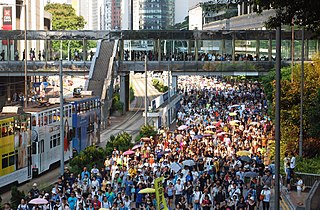
On 17 August 2017, three Hong Kong pro-democracy activists, Alex Chow, Nathan Law and Joshua Wong, were given prison sentences by the Court of Appeal for their roles in a protest at the Civic Square in front of the Central Government Complex in Tamar, Admiralty, on 26 and 27 September 2014. The events at the Civic Square helped set off massive pro-democracy protests, sometimes referred to as the Umbrella Movement, which lasted until police cleared the last of the protest sites in December 2014.
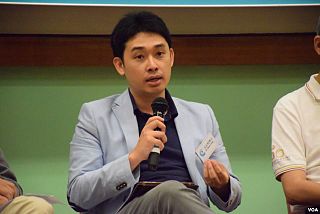
Brian C. H. Fong is a Hong Kong political scholar. He is currently Professor in the College of Social Sciences at National Sun Yat-sen University, Taiwan. He found and led several civil society organizations in Hong Kong.

















